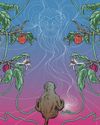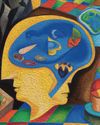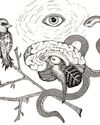
A philosopher is someone who sees deep questions where others find things straightforward. This I call ‘problematizing’, or, as Plato called it, ‘the search for the essence’. In any case, it instills a sense of mystery, awe and wonder. Now, there are numerous ways of problematizing and dealing with it; but rest assured, the consequences it has on the problematized are definite and enduring.
Where better to look for examples of the impact of philosophy on life than three fathers of Greek thought: Socrates, Diogenes, and Pyrrho? They had widely different, highly eccentric personalities (the price of authenticity, perhaps?). Although they differed in their philosophical approaches, they are all excellent examples of the impact philosophy has, for better or worse.
The last words of Socrates (470-399 BC) were “Crito, we owe a rooster to Asclepius. Please, don’t forget to pay the debt.” Ironic, given that Asclepius was the god of medicine and Socrates had just drunk hemlock. Was he implying that the poison was the cure for life? Or was he just displaying humour and insouciance, even at the brink of death?
This story is from the {{IssueName}} edition of {{MagazineName}}.
Start your 7-day Magzter GOLD free trial to access thousands of curated premium stories, and 9,000+ magazines and newspapers.
Already a subscriber ? Sign In
This story is from the {{IssueName}} edition of {{MagazineName}}.
Start your 7-day Magzter GOLD free trial to access thousands of curated premium stories, and 9,000+ magazines and newspapers.
Already a subscriber? Sign In

Anselm (1033-1109)
Martin Jenkins recalls the being of the creator of the ontological argument.

Is Brillo Box an Illustration?
Thomas E. Wartenberg uses Warhol's work to illustrate his theory of illustration.

Why is Freedom So Important To Us?
John Shand explains why free will is basic to humanity.

The Funnel of Righteousness
Peter Worley tells us how to be right, righter, rightest.

We're as Smart as the Universe Gets
James Miles argues, among other things, that E.T. will be like Kim Kardashian, and that the real threat of advanced AI has been misunderstood.

Managing the Mind
Roger Haines contemplates how we consciously manage our minds.

lain McGilchrist's Naturalized Metaphysics
Rogério Severo looks at the brain to see the world anew.

Love & Metaphysics
Peter Graarup Westergaard explains why love is never just physical, with the aid of Donald Davidson's anomalous monism.

Mary Leaves Her Room
Nigel Hems asks, does Mary see colours differently outside her room?

From Birds To Brains
Jonathan Moens considers whether emergence can explain minds from brains.